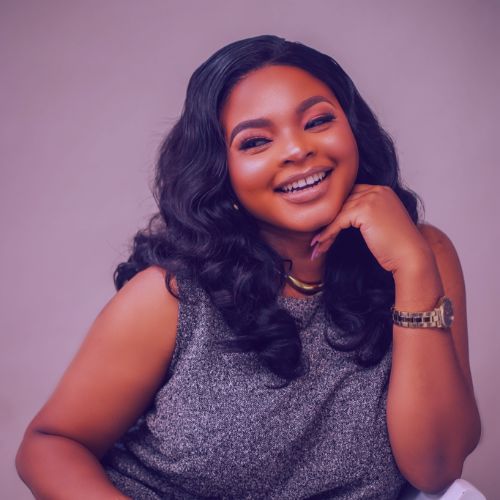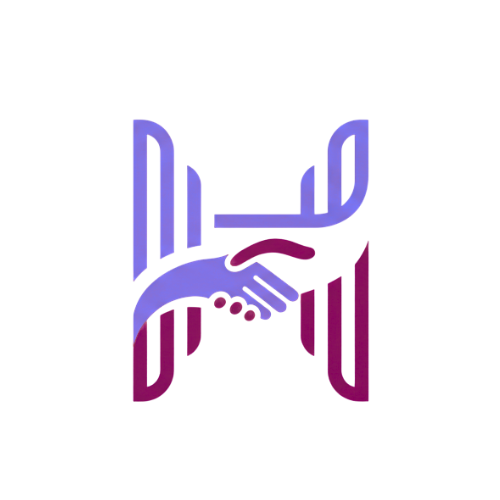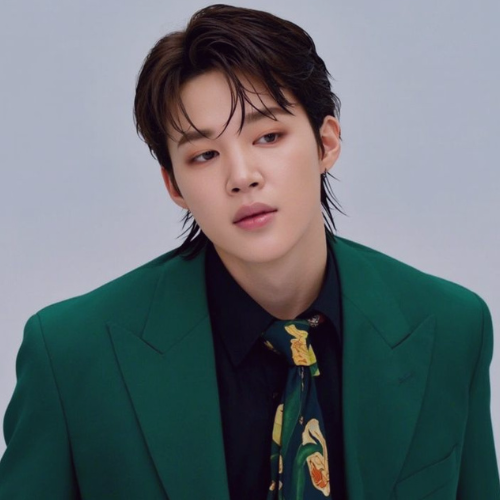Hamkke Chats with Habiba -|| Falling for Korea through Cultural Diplomacy
- byKemmieola
- 10 months ago
- 0 Comments
- 10mins

Meet Habiba
Habiba Sharon Yakubu is a development practitioner, cultural advocate, and well-being champion dedicated to driving impact at the intersection of culture, development and sustainability. She believes that culture is not a barrier to development but a powerful vehicle for driving social change, shaping policies, and fostering inclusive, sustainable growth.
Earlier this month, we had an amazing chat with her about her journey with the Korean language and culture. It was very insightful and we're excited to share this with you. Read Habiba's amazing interview below;
How long have you been an enthusiast?
I started around April 2019.
How has the journey been so far?
It's been 6 years now, and the reality of the journey has been in the day-by-day. I'll say it's not a linear journey where everything is straight. There are days when it feels like you know what you are doing, and there are days when you're asking yourself if you're betraying your own country. Like wait, are you even Nigerian at this point? Because why am I so passionate about another country? Nowadays, there's more interest, but back then when it wasn't so popular, everyone would look at you like you're unserious with your life. I remember someone even asking me to go study French at some point. It's really when you look back that you realize how far you've gone.
How did you get into the Korean culture in the first place?
I didn't start this journey from the angle of Korean boys, unlike most people who started with Kdrama. I watched Boys over Flowers much later so I could partake in discussions about the drama. I had no interest in Kdrama or Kpop initially. I actually started at my school where I studied Political Science. I've always been interested in the international system. In 300L, we started talking about the United Nations, international politics, and the like; then I came across North Korea and South Korea. I'd heard about Seoul all my life, but I wasn't concerned. However, there was something about the idea of North and South that piqued my interest, so I started reading about the countries. Then one day, I stumbled on my roommate watching the Kdrama Heirs. I noticed Lee Min Ho taking off his shoes in one of the scenes, and that piqued my interest in the culture. I eventually started learning the language, and it turned out to be a seed for great things.
Have there been any major learnings you've gotten in the culture space?
Yes. It has shifted my perspective towards many things. In terms of nation building, development, and sustainability, I've realized that you cannot pass a message until you're able to understand the cultural nuances of the people. And sometimes to develop within, you have to see how the people have been interacting with the problem, which is where my career is headed. I'm now in a space where I'm actively intersecting culture with development and sustainability, and it's been an amazing journey so far.
What is something you discovered about Korean culture that you think more people should know?
One thing that is perhaps spoken about but not paid enough attention to is the culture of learning, wanting to learn aggressively. To use the example of Hangul to explain, if you look at Korea beside Japan and China, China had a great impact on Korean and Japan and other eastern neighbors culturally. It would have been easier to say, based on the trend, let's stick to the known culture. But there's a practice of taking something and redefining it, remodeling it for the people. I once took a course at the Sungkyunkwan University, and we learnt about the model of adaptability where interesting cultural practices are taken and then remodeled to fit the Korean culture. For instance, hip hop music is taken and tweaked to fit the Korean culture and then made a Korean product - K-Pop. Another example of the learning culture is with Hangul. The language was created by going into the culture to find a means through which they could speak a language unique to them. I really find it interesting, and I think it's something that more people should pay attention to and incorporate in our day-to-day lives.
How has your interest in Korean culture affected you as a person?
Right now, I have to keep reminding people that I'm Nigerian. People tend to think I'm mixed, and I think it's because of how I relate and speak. I can be very diplomatic in conversation, and I think it's something that has been affected by my relationship with the culture. You know, when you have a Sunbae (Senior) at work, you don't just talk to them like that. And I automatically bow without knowing. Interestingly, it didn't start because of the culture, but now it's so bad because of the culture. I have a bit of Yoruba side in me, like bowing on the phone while taking a call. Now, imagine the Yoruba plus the Korean on top (laughs)
And I'll say it has affected my palate as well. It has made me really appreciate international cuisine. I've become very familiar with international cuisine, and I cook and enjoy it for myself. Piggybacking off adaptability, it has helped me not waste ingredients. Whenever I have leftover food, I always think nah, this can work for something.
What are some of the challenges you've faced as someone going into cultural diplomacy?
Let's start with culture barrier and language barrier. I want to speak about them as two separate things. Culture barrier in terms of how we interact with the world. Language barrier in terms of the way you perceive things that have been said. For example, one time, I was in charge of a press conference, and in my own head, I was just to line up the journalists on their seats and we move on. But I remembered that in Korean culture, you can't just line them up. You have to seat them according to their hierarchy. But in reality, there was really no hierarchy, so I had to create one in my head and seat them by that hierarchy. Then, I had to explain to the journalists why they were placed where they sat so there would be general understanding. So sometimes, you'll think you're just having a conversation, but it'll sound off to the other person. So these two things, you are continuously learning by the day.
What was it like to learn the language? How did you learn?
I was self-taught at first, but luckily, being in Abuja, I was able to attend the Sejong Institute here. I also tried some online classes from Talk to Me in Korean; those classes helped a lot. But generally, my challenge has been speaking. Since I'm exposed to movies and the like, it's easier to understand the language. All of us have our unique learning structure, and for me, I still haven't found the structure that works for me, so it's still like a daily learning and trial experience for me.
Are there any interesting/surprising things you've learned on your journey with the culture?
One of the things I've found shocking was the dedication to skin care because where we're coming from, skincare is the Pond powder, and the round green thing our mums used to apply
Nixoderm?
Yeah! Nixoderm. And we'll be looking like ghosts at night (laughs). And then at some point, we heard about Mary Kay, and we couldn't wait to become adults and use that. But then now, you see a people collectively agree that skincare is important. But the only reason they believed they needed skincare was because deep in the culture, it's the perception that it's important to be at your best at all times. Everything is still back to the cultural nuances; everyone wants to be his/her best. You now see that men even have their own dedicated skincare. Some, into skincare and makeup... and I look at myself; ordinary eyebrow, I cannot brow. It's amazing, you know. That was a big culture shift for me.
When it comes to the food, it's how it looks very simple on the outside. It's full of colors, but the taste could just be amazing. And everything has a cultural explanation. There's a reason why there are five colors in your food. I remember going to Korea, and everything felt so surreal because I had read all these things, and then there I was - the annoying one in the tour group. I wanted the tour guide to not explain things on the surface, but to go to the deep because I had read so much.
Lastly, it's the power of documentation. These things we're reading about, it's because they were documented.
What advice would you give somebody who's interested in learning about the Korean language and culture?
One of the challenges I have seen with a lot of young people - like when young people come to the center and talk about wanting to learn, most times, they're talking about K-pop and K-drama because that's what they know. It's almost like you're looking for a culture to redefine your identity. I want to say that do not see the K culture as an opportunity to find a way to redefine your life or identity in the sense that you cannot be a Korean. You are African, you are Nigerian, and that's your big plus. But you can explore the culture because you appreciate it and you want to understand. The idea is to appreciate what the world outside of your space looks like because the more you are exploring the cultures, the more you're realizing how beautiful simple life is and how we are all the same.
I'm currently learning 3 other languages - Italian, German, and French - and these languages are all kind of connected because of the Italian, and you can see the connection between them as you learn. It just helps you see how beautiful life is, how we are thinking the same, and how we're the same.
It'll be beautiful that you come into the Korean culture from the place of appreciating other people and wanting to expand your knowledge. That way, you are safeguarding your identity but at the same time gaining, because you'll learn skills, see life from different angles and be able to live the best of it.
Bonus Section - Balance Game
Would you rather eat one Nigerian dish for the rest of your life or three Korean dishes for the rest of your life?
Definitely not one Nigerian dish for me. I'll cry
I'll say three Korean dishes because it's diplomatic. The three dishes would definitely be;
Soodubujigae with my rice
That's already 2
But Korean food always has rice now. This is the cultural nuance I'm talking about. In Korean, rice must be. Rice is constant. It comes with everything.
Okay, I'll allow it
Sundubu jigae with rice
Kimchi
Japchae
Forever?
Yeah
Those are some great choices. Thank you so much for doing this. It was really great to have you on.
Thank you.
Tags:
Kemmieola
Storyteller, creative, aesthete, currently navigating the throes of an immense dependence on Kdramas for equilibrium.
0 Comment(s)
Related Posts
Daily Newsletter
Get all the top stories from Blogs to keep track.





Leave a comment